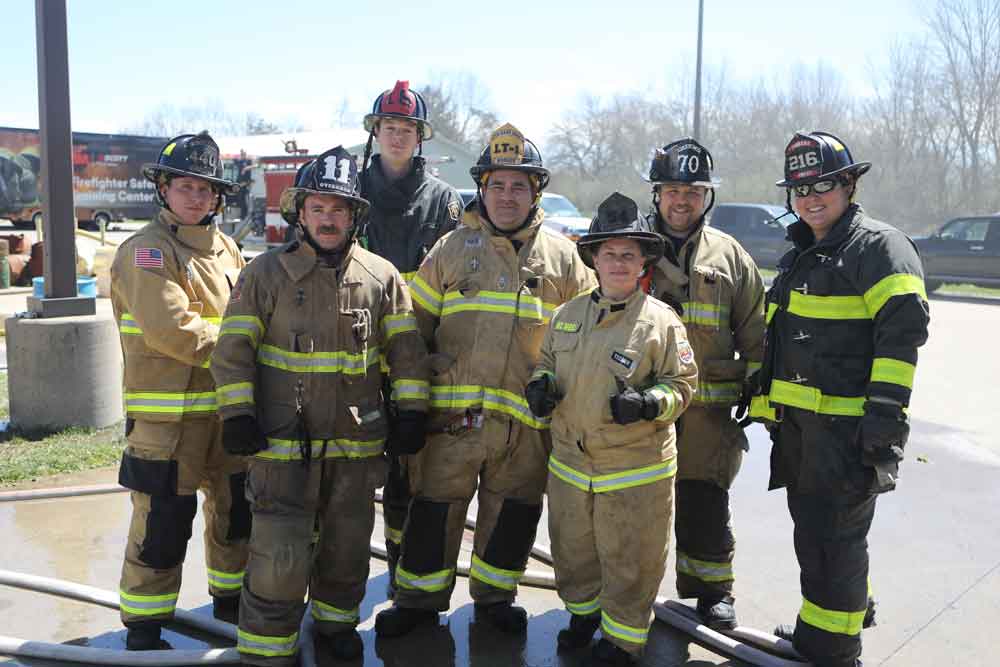
By Susan Tamme
Every discussion or exchange of words we engage in at the firehouse (or anywhere for that matter) begins years before a word is ever spoken. Each of us includes our past in our current conversations–the experiences that shape us, the lessons life has taught us, and the viewpoint that has developed from our unique and individual past. Our conversations include our specific and individual viewpoints.
These words contain our prejudices. These biases are nothing more than those perspective beliefs that shaped our viewpoint despite further examination of the possible merits of an alternative opinion. For example, in the first firehouse to which I was assigned, I worked for an older, fire captain who was close to retirement and whose main goal was to do as little as possible. We never trained, the paperwork was nonexistent, we rarely saw him, and station life was negative. My viewpoint of fire officers near retirement was not a good one.
RELATED
Inner Dialogue and the Brotherhood
Small Group Dynamics: Building Your Fire Department from the Bottom Up
Building a Gender-Inclusive Workplace
Kelly B. Jernigan: Less Diversity Is Needed in the Fire Service
I was assigned at another station with a firefighter who was a vegan. He never ate a meal with the crew. We always had to go out and get him something special to eat. The opinion of him among those in the station was that he wasn’t a team player. He was weak because he didn’t eat meat. He was needy and couldn’t be depended on.
There are examples in every station of opinions of fellow coworkers formed with regard to gender, diet, race, size, and just about anything else. Our perspective is created and then reinforced by the words and conversations of those around us who are speaking from their experiences or prejudices.
Across the nation, there is much discussion daily regarding gender-neutral firehouses, accusations of sexual misconduct, votes of no confidence, diversity training, a meeting for specific genders or cultures, behavioral issues, LGBT, and working only for the pension. In general, distrust begins to build in our minds based on the words we hear from fire service members.
Where is the truth in these conversations around the firehouse? Are you capable of shaping your perspective? Lisa Williams, in her research as a psychologist says, “Beliefs about characteristics of a group of people are all around us. They allow for quick decision-making by providing a bit of “pre-information” to guide our judgment. Because it is a generalization, it will almost always be wrong in its application to any one individual.” Do you buy into all of the discussions at the firehouse kitchen table, or do you open your mind to the possibility of other explanations?
The challenge we face in our fire departments being able to cut through all this “pre-information” and barriers and recognizing that there is a justification for a personal point of view. We have to do a better job of understanding each other and engage in some self-examination of our own beliefs.
The Power of Diversity: It May Not Be What You Think!
Be a Different Firefighter: Accepting Diversity and Differences
The Fire and Emergency Services Culture: Can It Be Changed?
Women in the Fire Service: A Diverse Culture Leads to a Successful Culture
It can be difficult to navigate through these discussions. You may have to start by confirming a bias before you can develop a connection with somebody. We must invest time and energy in piercing through these long-standing viewpoints before we begin that constructive and understanding dialogue.
As we examine our personal position on many topics, let’s look at how our firefighting culture has been shaped by the generations of the firefighters before us by their images, words and actions. Does this culture still exist? Do we still value these images, the words, and the actions? These biases are alive and present in the fire service even though we may not consciously be aware of them, and every new firefighter brings to the organization a history of his/her peculiar prejudices.
Are we courageous enough to shape our own perception and future? Each member is different and unique, yet all members have earned the title of firefighter. In our firehouses there will be people who are more like us and those who will stand out because of they differ in ability, interests, or attainment. We all have work to do. Through courageous conversations and treasuring the qualities in every firefighter and accepting them as they are we will reshape our individual biases. Social change is hard, but those who begin changing from within will inspire others and can make a tremendous contribution toward opening the door to a better working environment and a better fire department.
Reference
Williams, Lisa A. Access 11-16-15 http://theconversation.com/the-problem-with-merit-based-appointments-theyre-not-free-from-gender-bias-either-45364 –
Susan Tamme is a 22-year veteran of the fire service and a district chief with Tampa (FL) Fire Rescue (TFR). She is a Florida fire instructor III, a member of Florida USAR Task Force 3 and the TFR hazardous materials team, and an experienced ladder and heavy rescue officer. She has an associate degree in fire science and emergency medicine, a bachelor’s degree in organizational management, and a master’s degree in education. She is the secretary of iWomen and a member of its executive board.

